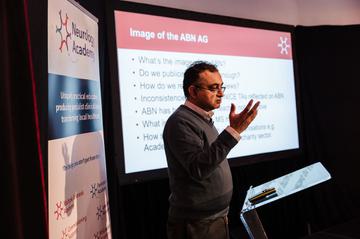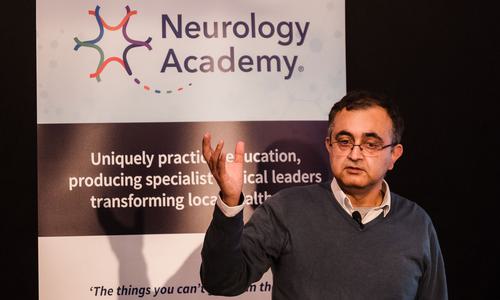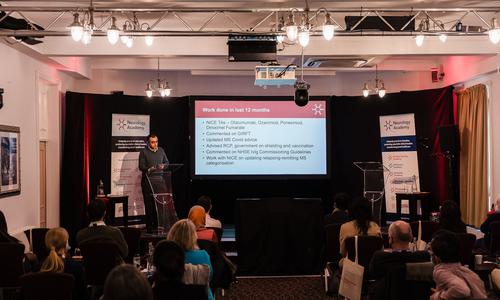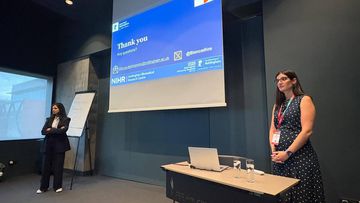Update from the ABN MS Advisory Group - MS Cutting Edge Science
Event reportsDr Waqar Rashid
Consultant neurologist, St George's University Hospitals NHS Foundation Trust

This session is part of a series of write-ups on Cutting Edge Science for Multiple Sclerosis 2021; the conference summary for which is here. The conference was chaired by Dr Wallace Brownlee.
The MS Advisory Group (MS AG) has been working with NICE to update the categorisation of relapsing remitting MS (RRMS).
Dr Waqar Rashid said the project’s objective is to address the problems associating with increasing divergent classifications of RRMS within disease modifying therapy (DMT) reimbursement policies.
These widely differing and complex categories are hard to explain to patients and are often unworkable in day-to-day practice, he explained.
Dr Waqar Rashid
The project, due to be published in the spring, is just one of the initiatives the MS AG has been involved in over the last year.
The first ABN guidance on the use of DMTs during the pandemic was published in March 2020, and Waqar said he was proud the MS AG had acted so quickly. Updated advice was launched in August.
“We have been able to move with the evidence and to modify our advice. This is an example of where the AG can help us all as clinicians,” he said.
The updated version encourages the use of all DMTs, with safety caveats, and talks about how to reduce the monitoring burden.
Future plans
The MS AG has a range of projects in the pipeline, including an update of the ABN DMT guidelines.
“The last ABN MS DMT guideline was in 2015, and is in sore need of an update,” said Waqar. “There have been countless NICE TAs since then as well as the current COVID changes.”
He said he was keen for the document to include advise on good practice I areas including the use of anti-CD20s, monitoring, women contemplating pregnancy, stop criteria, de-escalation strategy, and switching.
The group aims to engage with other organisations, including the ABN Special Interest Group (SIG), the MS charities, and fellow clinicians to develop the update. Waqar said: “We want a wide range of opinion and advice.”
The AG will also be looking at developing vaccination advice, widening the options on Blueteq for women contemplating pregnancy, and whether it would be possible to standardise DMT consent across the country.
This activity has been supported by sponsorship from Roche Products Ltd, Biogen Idec Ltd and Janssen-Cilag Ltd. The sponsors have had no control over the educational content of this activity.

Related articles
Encouraging excellence, developing leaders, inspiring change
MS Academy was established in 2016 and in that time has accomplished a huge amount with exciting feedback demonstrating delegates feel inspired and energised along their personal and service development journeys. The various different levels of specialist MS training we offer are dedicated to case-based learning and practical application of cutting edge research.





